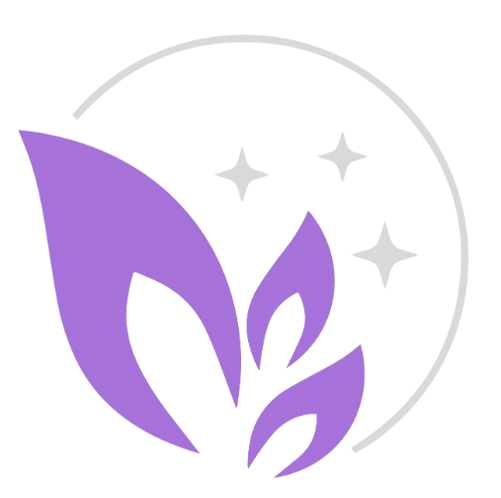
How to Detox Naturally: A Complete Step-by-Step Guide
Table of Contents
ToggleNatural detox is often surrounded by conflicting advice and bold promises, but one fact jumps out. Signs like persistent fatigue, unexplained weight changes, and digestive issues can point to toxic overload in your body. So it might seem like a one-size-fits-all detox plan is the way to go. The twist is that the most effective results come from understanding your unique health picture first.
Table of Contents
- Step 1: Assess Your Health And Detox Goals
- Step 2: Prepare Your Body With A Healthy Diet
- Step 3: Incorporate Natural Detox Remedies
- Step 4: Enhance Detoxification Through Hydration
- Step 5: Monitor Your Progress And Adjust As Needed
Quick Summary
| Key Point | Explanation |
|---|---|
| 1. Conduct a health assessment first | Evaluate your current health, symptoms, and lifestyle to tailor your detox approach effectively. |
| 2. Emphasize a healthy diet | Focus on whole, nutrient-dense foods and eliminate processed items to support detoxification processes. |
| 3. Introduce natural detox remedies gradually | Use herbal supplements like milk thistle and turmeric to enhance body cleansing without overwhelming it. |
| 4. Hydrate strategically | Prioritize high-quality water intake and consider herbal teas to support hydration and toxin elimination. |
| 5. Monitor progress for adjustments | Keep a health journal to track changes and refine your detox strategies based on your body’s feedback. |
Step 1: Assess Your Health and Detox Goals
Launching a natural detox journey requires a strategic and personalized approach that begins with comprehensive self-assessment. Your body is a complex system, and understanding its unique needs is the foundation of an effective detoxification process. Before diving into any detox protocol, you’ll want to conduct a thorough evaluation of your current health status, potential toxin exposures, and specific wellness objectives.
Start by creating a detailed health inventory that captures your current physical condition, lifestyle habits, and environmental interactions. This means documenting your medical history, chronic conditions, recent symptoms, and potential areas of concern. Pay special attention to indicators of toxic overload, such as persistent fatigue, unexplained weight fluctuations, skin issues, digestive problems, and recurring headaches. These symptoms can signal that your body’s natural detoxification mechanisms might be struggling.
Your personal detox goals should emerge from this comprehensive assessment. Some individuals might focus on liver support, while others may target gut health or overall systemic cleansing. Learn more about personalized detox strategies that align with your specific health needs. Consider consulting with a healthcare professional who can provide targeted insights into your unique physiological landscape and help you develop a nuanced detox approach.
Critical elements to evaluate during your health assessment include:
- Current diet and nutrition patterns
- Stress levels and mental health indicators
- Sleep quality and duration
- Regular exposure to environmental toxins
- Exercise and physical activity levels
- Specific health concerns or chronic conditions
Remember that an effective detox is not a one-size-fits-all solution. Your protocol should be as individual as your fingerprint, carefully crafted to support your body’s natural cleansing processes without overwhelming your system. By taking the time to conduct this thorough initial assessment, you’re setting the stage for a more targeted, safe, and ultimately successful detoxification journey.
Here is a checklist summarizing the key initial elements to evaluate during your health assessment before starting a natural detox.
| Assessment Area | What to Track | Why It Matters |
|---|---|---|
| Diet & Nutrition Patterns | Typical meals, snacking, processed food intake | Reveals dietary stressors and gaps |
| Stress & Mental Health | Daily stress levels, mood, coping strategies | Mental stress can impact detox |
| Sleep Quality & Duration | Average sleep hours, interruptions, restfulness | Poor sleep hinders body repair |
| Environmental Toxin Exposure | Workplace/home chemicals, pollution, heavy metals | Identifies hidden detox roadblocks |
| Physical Activity Levels | Frequency, type, and duration of exercise | Activity boosts metabolism & detox |
| Chronic Health Concerns | Ongoing symptoms, diagnoses, medications | Needed to personalize detox approach |

Step 2: Prepare Your Body with a Healthy Diet
Preparing your body for a natural detox begins with transforming your diet into a powerful healing instrument. This critical step involves strategically selecting foods that support your body’s innate detoxification processes and eliminating substances that impede cellular cleansing. Your nutrition becomes the primary tool for supporting metabolic function and promoting internal restoration.
A successful dietary preparation requires thoughtful food selection that emphasizes whole, nutrient-dense ingredients while systematically reducing processed and inflammatory substances. Explore our comprehensive guide to gut cleansing to understand how nutrition impacts your body’s natural detoxification mechanisms. Focus on incorporating foods rich in antioxidants, fiber, and essential minerals that actively support liver function and cellular repair. Green leafy vegetables, cruciferous vegetables like broccoli and cauliflower, berries, and lean proteins become your primary allies in this nutritional reset.
Transitioning to a detox-supportive diet means gradually eliminating potential inflammatory triggers. Reduce or completely remove processed sugars, alcohol, caffeine, and refined carbohydrates. These substances create unnecessary metabolic stress and can impede your body’s natural cleansing processes. Instead, prioritize organic produce, wild-caught fish, grass-fed meats, and plant-based proteins that provide clean, easily digestible nutrition.
Key dietary modifications to support your detox journey include:
- Increasing water intake to support cellular hydration and toxin elimination
- Consuming organic, pesticide-free vegetables and fruits
- Incorporating fermented foods for gut microbiome support
- Selecting lean, high-quality protein sources
- Minimizing inflammatory food groups like processed grains and dairy
Your dietary preparation is successful when you notice improved energy levels, more stable digestion, reduced inflammation, and a sense of overall vitality. Pay attention to how your body responds to these nutritional changes, and be prepared to make incremental adjustments.
 Remember that a natural detox is not about extreme restrictions but about nurturing your body with intentional, supportive nutrition.
Remember that a natural detox is not about extreme restrictions but about nurturing your body with intentional, supportive nutrition.
Step 3: Incorporate Natural Detox Remedies
Natural detox remedies offer powerful support for your body’s internal cleansing mechanisms, transforming simple ingredients into potent healing tools. This step moves beyond dietary modifications to strategically introduce herbs, supplements, and lifestyle practices that amplify your body’s innate detoxification processes. Your goal is to create a comprehensive approach that gently supports cellular renewal and toxin elimination.
Learn more about creating an effective natural detox routine to maximize your body’s healing potential. Herbal remedies stand at the forefront of natural detoxification, with certain plants demonstrating remarkable abilities to support liver function and cellular cleansing. According to research examining botanical detoxification pathways, compounds found in herbs like milk thistle, dandelion root, and turmeric actively support the body’s natural elimination processes.
Implementing these remedies requires a thoughtful, gradual approach. Begin by introducing one herbal supplement at a time, carefully observing your body’s response.
Milk thistle supports liver cell regeneration, while dandelion root acts as a natural diuretic that helps flush toxins. Turmeric provides powerful anti-inflammatory support, helping to reduce systemic inflammation that can impede detoxification processes.
Your natural detox remedy toolkit should include:
- Herbal teas featuring detoxifying ingredients
- High-quality, organic herbal supplements
- Natural hydration methods like lemon water
- Adaptogenic herbs to support stress management
- Probiotics to support gut health and toxin elimination
Successful integration of natural detox remedies becomes evident through improved energy levels, clearer skin, more consistent digestion, and an overall sense of renewed vitality. Pay attention to subtle changes in your body, understanding that detoxification is a nuanced process that requires patience and mindful observation. Each individual’s response to natural remedies will be unique, so remain flexible and attentive to your body’s specific needs throughout this transformative journey.
This table summarizes common natural detox remedies and their purposes to help you select the most effective options for your needs.
| Remedy Type | Example Ingredients | Main Benefit | How to Use |
|---|---|---|---|
| Herbal Teas | Dandelion, ginger, green tea | Supports liver & kidney detox | Brew as infusion, drink daily |
| Herbal Supplements | Milk thistle, turmeric | Liver support & inflammation | Take capsules per guidelines |
| Probiotics | Lactobacillus, bifidobacterium | Gut flora balance, toxin removal | Add to diet or take supplements |
| Adaptogenic Herbs | Ashwagandha, rhodiola | Stress reduction | Add to smoothies or teas |
| Natural Hydration | Lemon water, infused water | Improves toxin elimination | Drink throughout the day |
Step 4: Enhance Detoxification Through Hydration
Hydration represents a fundamental cornerstone of any effective natural detoxification strategy, transforming water from a simple beverage into a powerful cellular cleansing mechanism. Water acts as the body’s primary transportation system for eliminating metabolic waste and supporting critical physiological processes. Your hydration approach must transcend basic fluid intake, becoming an intentional practice of cellular nourishment and systematic toxin removal.
Explore our comprehensive guide to understanding liver detoxification to appreciate how proper hydration supports your body’s intricate cleansing systems. According to scientific research on metabolic waste elimination, consistent water consumption is crucial for flushing toxins through kidney function and supporting overall cellular health. Beyond plain water, consider integrating herbal teas, infused waters, and electrolyte-rich beverages that provide additional detoxification support.
Creating a strategic hydration protocol involves more than simply drinking water. Focus on consuming high-quality, filtered water free from contaminants. Start your day with a warm glass of water with fresh lemon to stimulate digestive function and support liver metabolism. Throughout the day, maintain consistent hydration by drinking water between meals, avoiding excessive fluid intake during eating to support optimal digestion.
Your hydration strategy should incorporate:
- Tracking daily water intake
- Using glass or stainless steel water containers
- Consuming water at room temperature for better absorption
- Integrating herbal teas with detoxifying properties
- Monitoring urine color as a hydration indicator
Successful hydration during detoxification becomes evident through improved energy levels, clearer skin, more consistent digestion, and a sense of internal clarity. Your body will signal its appreciation through enhanced metabolic function, reduced inflammation, and a feeling of renewed vitality. Remember that hydration is a dynamic process requiring consistent attention and mindful consumption.
Step 5: Monitor Your Progress and Adjust as Needed
Monitoring your detoxification journey transforms an abstract health protocol into a personalized, responsive roadmap of wellness. This crucial step bridges your intentional efforts with your body’s unique physiological response, creating a dynamic approach that respects individual variations in healing and cleansing processes. Tracking progress is not about achieving perfection but understanding your body’s signals and adapting your strategy accordingly.
Learn how to safely track your health transformation as you move through your detoxification journey. According to health tracking guidelines, systematic observation provides critical insights into your body’s metabolic changes. Begin by establishing baseline measurements before starting your detox. These should include not just physical metrics like weight and body composition, but also subjective experiences such as energy levels, sleep quality, mental clarity, and overall sense of well-being.
Create a comprehensive tracking system that goes beyond traditional health markers. Maintain a detailed journal documenting daily experiences, noting subtle shifts in your physical and emotional landscape. Record your diet, hydration levels, herbal supplement intake, and any accompanying symptoms or improvements. This documentation becomes your personal health map, revealing patterns and providing valuable feedback about which strategies are most effective for your unique physiology.
Your progress monitoring toolkit should include:
- Daily health journal with specific tracking categories
- Weekly body measurement checks
- Consistent energy and mood rating system
- Photographic documentation of physical changes
- Regular self-assessment questionnaires
Successful progress monitoring manifests through increased self-awareness, refined detoxification strategies, and a deeper understanding of your body’s intricate healing mechanisms. Be patient and compassionate with yourself, recognizing that detoxification is not linear. Some days will bring significant improvements, while others might feel challenging. The key is maintaining consistent observation, remaining flexible, and making incremental adjustments based on your body’s feedback.
Ready to Turn Your Detox Goals Into Real Health Results?
If you have been feeling drained, noticing unexplained symptoms, or frustrated by the lack of clear progress on your natural detox journey, you are not alone. The article “How to Detox Naturally: A Complete Step-by-Step Guide” highlights the challenges so many face: evaluating your own health needs, supporting your liver, improving your gut health, and finding safe, reliable remedies. Achieving real results takes more than good intentions. It requires scientific support, purity, and genuine trust in what you put into your body.

Now is the time to take action and address those lingering pain points. On https://mahoneyinter.com, you will discover pharmaceutical-grade supplements, holistic parasite cleanse protocols, and bundles specifically designed to support each stage of your detox journey. Our best-selling liver support and gut health products use ingredients backed by science, helping to amplify your efforts from Step 1 all the way to long-term progress tracking. Embrace a cleaner, safer path to renewed energy and vitality. Explore our community testimonials, get answers to your questions, and choose the trusted solutions that fit your wellness plan right now.
Frequently Asked Questions
How do I assess my health before starting a natural detox?
Begin by creating a detailed health inventory that includes your medical history, chronic conditions, symptoms, and lifestyle habits. Focus on indicators of toxic overload, such as fatigue, digestive issues, and skin problems to tailor your detox goals effectively.
What dietary changes should I make to prepare for a natural detox?
Shift to a whole, nutrient-dense diet by incorporating foods rich in antioxidants and fiber, such as green leafy vegetables, berries, and lean proteins. Eliminate processed sugars, alcohol, and refined carbohydrates to support your body’s detoxification processes.
What natural remedies can I incorporate into my detox plan?
Consider using herbal supplements such as milk thistle, dandelion root, and turmeric, which support liver function and reduce inflammation. You can also include herbal teas and probiotics to enhance your detoxification efforts.
How important is hydration during a natural detox?
Hydration is crucial as it helps eliminate metabolic waste and supports overall cellular health. Aim to drink filtered water consistently, and include herbal teas and infused waters to enhance your hydration strategy.

